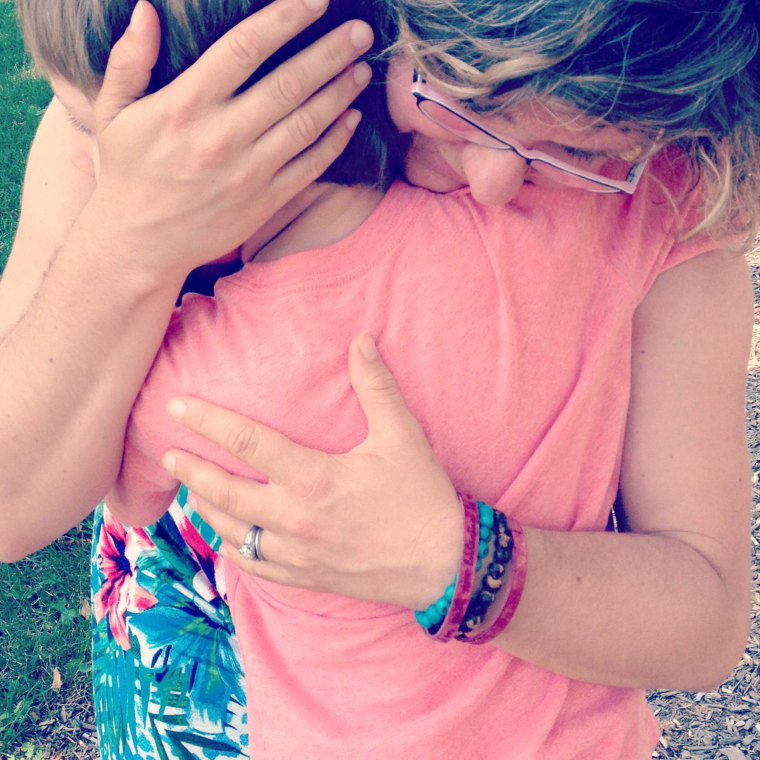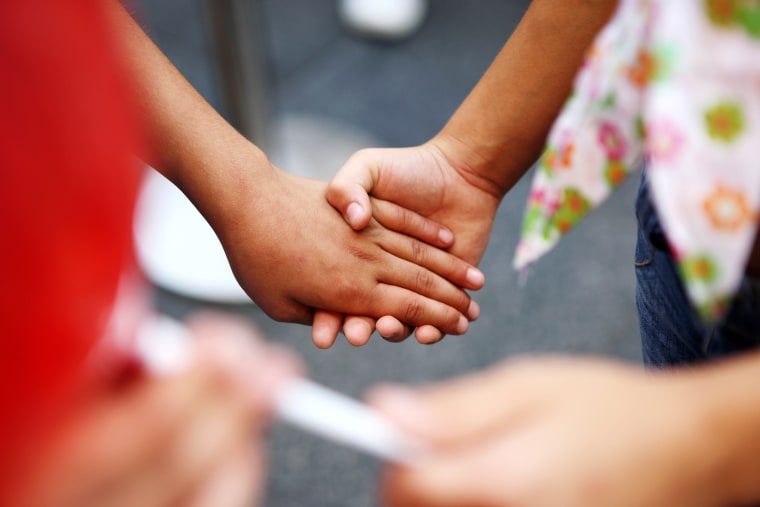Psychotherapist Lisa McCrohan is raising compassionate children. She’s focused on having a sense of regard for her family and, most importantly, for herself. It’s an essential component of being an “includer,” according to McCrohan.
“When we’re regarding ourselves it organically then flows out into our relationships with other adults and then that trickles down to our children, and that impacts the tone and vibe [and] the energy in the family,” McCrohan tells NBC News BETTER.
Inclusion starts with you
The “Gems of Delight” author and her husband are conscious of the way they interact with each other and how they model that behavior for their 10-year-old son and 7-year-old daughter, she says.
People often believe inclusion is about considering how the other person in the situation feels, but it actually begins with understanding and embracing your own negative emotions as they rise within you.
When McCrohan finds herself angry at her husband, she takes what she calls a “sacred pause.” Before reacting, she stops and names what’s happening in her body: Her heart is pounding, her jaw is clenched, her stomach is in a knot. She says that stopping to recognize these sensations allows her to get grounded.
RELATED: Fathers' Brains Respond Differently to Girls and Boys
“We begin to come back into the present moment and then we can have a choice about how we’re going to respond,” the compassion coach explains.
Includers have compassion for themselves
McCrohan said people often believe inclusion is about considering how the other person in the situation feels. But she says it actually begins with understanding and embracing your own negative emotions as they rise within you.
“It’s ok what the initial reaction is within us,” she says. “And once we have that sense of inclusion, we have that sense of ‘It’s ok what I’m feeling, or what I’m thinking, or what I’m experiencing in my body,’ then we have the sanity to choose a compassionate response for ourselves and for others.”
The next step, she said, is making a request of your partner to understand how you feel.
“It’s a request, not a demand,” explains McCrohan.
Children need to feel included
The psychotherapist said early childhood is a vulnerable phase in your child’s life.
“[Ages] 0 to 6 is a really important time in our development,” McCrohan says. “We don’t really have explicit memory. We have implicit memory, and implicit memory is when our bodies remember but our cognitive minds don’t.”

She said parents should treat their children with a sense of inclusion, compassion and regard.
“So they are experiencing in their nervous system and every other system that’s developing within them this sense that’s like, ‘You Matter. You belong…You’re loved.’”
McCrohan pointed out that parents aren’t perfect, and it’s okay if you lose your temper from time to time. That’s when parents need to slow down, regroup and give hugs, she explains.
“There’s a lot of beginning again,” says the author.
Including your children starts with listening
How can you help your child deal with problems in their relationships? McCrohan said if your child is being bullied, you should intervene. But in many cases parents simply need to listen and provide guidance, she says.
“Anything we want for our children — if we want compassionate communities, compassionate schools — it really begins with each of us individually as parents."
When McCrohan’s son was in the second grade, he was upset that some of his classmates didn’t include him in a game, she said. Rather than try to solve the problem for him, McCrohan thanked her son for sharing his feelings. Then she asked him what were the qualities he wanted in a good friend, and helped him identify the qualities he felt made him one.
“At the end of the year what I saw is that he had become more confident, more aware of like, ‘Ok, well, these are the kinds of friends that I want, and this is the kind of friend I am,’” she says. “And so he had resolved it, because there was a certain sense of regard for himself.”
She said there’s always opportunity for including your children by listening to them and helping them become more emotionally intelligent.
“Anything we want for our children — if we want compassionate communities, compassionate schools — it really begins with each of us individually as parents,” McCrohan says.
How to be an includer
- Inclusion starts with you. When you find yourself getting upset, take a “sacred pause,” identify your emotions, and get grounded.
- Have compassion for yourself. Embrace your negative emotions and understand that it’s okay to feel that way. Instead of lashing out, ask your partner to recognize how you feel.
- Early childhood is an important phase in your child’s life. Treating your children with a sense of inclusion is important, but it’s okay to slip up. Start again. Build confidence in your children by helping them find answers for themselves.

